1. Hey, can you please introduce yourself?
Hi! My name is Hailley Griffis, originally from Canada, I now live in the U.S. with my husband, two dogs, two cats, and various fish. I’ve been working remotely at Buffer for over five years now, where I am the Head of Public Relations. Buffer is a social media software and a fully remote team of 85 people who work across 18 countries. I’ve had the privilege of running Buffer’s State of Remote Work report since 2017, where we survey remote workers around the world about their experiences, struggles, and overall thoughts on remote work. In addition to my work at Buffer, I co-host MakeWorkWork, a podcast that I run with a friend where we talk about growing our careers, doing creative work, and striving to be better. Finally, I also write about remote work, public relations, and career progress both on my own blog and as a freelance contributor to other publications.
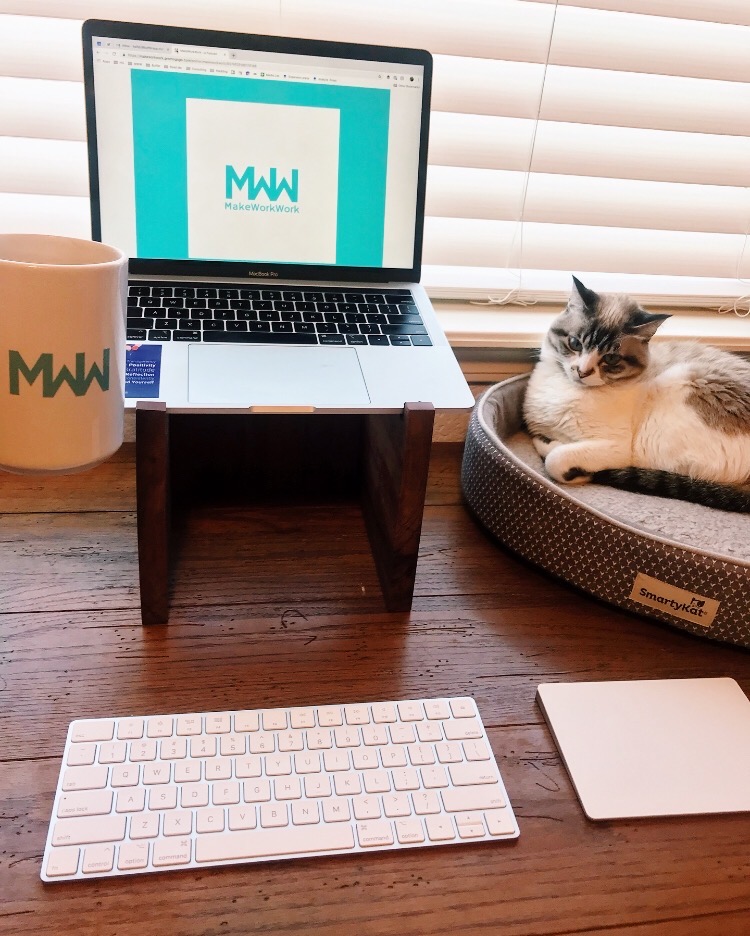
2. What motivated you to choose remote working?
Initially, I was motivated by the desire to travel. I had started freelancing while I was still finishing up University and was already following Buffer’s journey, though I didn’t yet work there. I knew that remote work was an option for the kind of work I was doing in social media and public relations so I started asking for it when seeking out jobs out of school. None of the job offers I received were willing to let me work remotely, so instead I decided to freelance and travel to benefit from the same experience. I spent many more years traveling while working remotely before settling down in the US. Now, my husband is in the military and we are moved every few years, so my current motivations for remote work are very different from what they were at the beginning. I now see the benefit of having the flexibility to live and work from wherever I want to so that I can continue to grow my career as well as move to new places to support my husband in his own role.
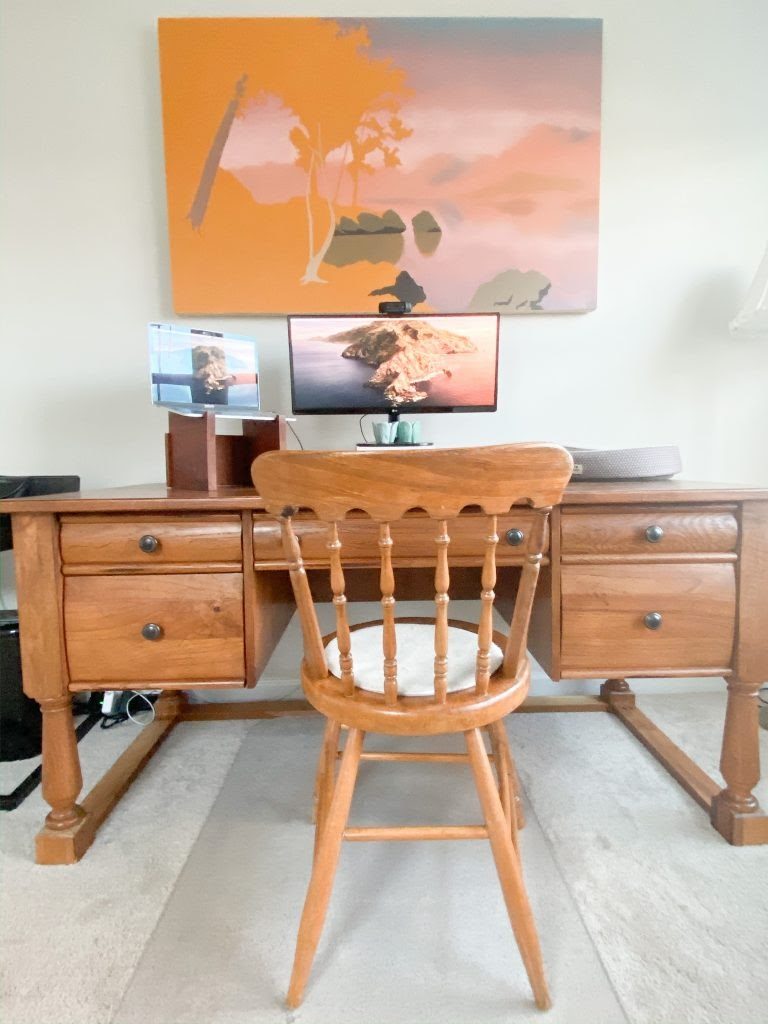
3. What were your initial months like? Did it live up to your expectations?
My initial months at Buffer, which was my first truly remote role as prior to that I was freelancing when traveling, absolutely lived up to expectations. I was looking forward to having the flexibility to work from home, or coffee shops, or to meet up with friends at coworking spaces and I was able to do all of that. I was also expecting that I would be more productive working alone than I had been in my previous role, which had an open office concept, and that was true as well. I spent the first three months in my role at Buffer primarily staying put, I lived in Oakland, CA at the time, and after that, when I felt I had a good understanding of my role and my team, I started spending more time traveling, which was exactly what I was looking forward to with the move to working remotely full-time.
4. How did you find remote working roles?
In my case, I was already following Buffer when I saw that they were hiring, I wasn’t actively searching for remote roles, just following along with a few specific companies that I admired that were fully remote in case they opened up positions. This is a strategy I recommend to a lot of people as a great way to keep tabs on potentially good job openings, especially as some companies don’t widely promote their roles so it’s best to keep an eye on their careers page.
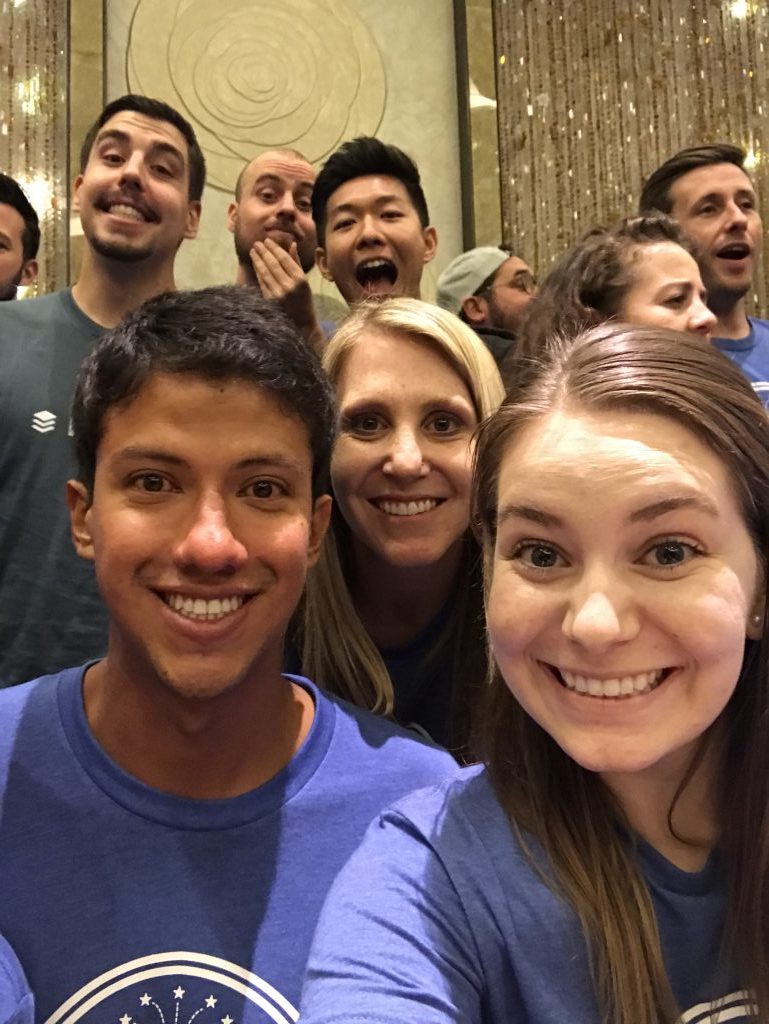
Another technique that I recommend to friends is that they keep an eye on any fully-remote teams that they are interested in joining or join their hiring newsletters. I’ve also shared a lot of remote job boards with friends seeking remote roles, Remotive, We Work Remotely, and FlexJobs, are all great starting points for remote roles. LinkedIn now also lets users set their preferred location to Remote when they are job hunting.
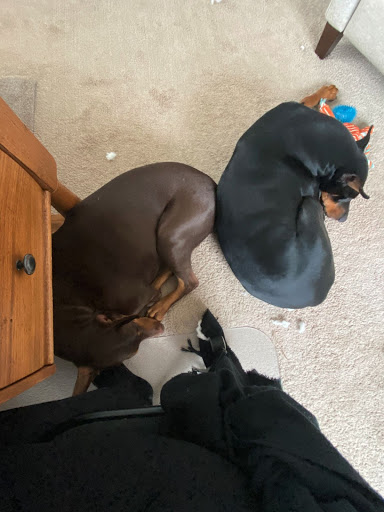
5. What have been the best, good and worst aspects of remote working for you?
Hands down, the best part of remote work has been the flexibility, which has meant different things over the years. Initially, the flexibility to travel, explore the world with friends, and be with my family in various parts of the world on special occasions was the absolute best.
Now, the best part is the flexibility for a different reason, I’m able to maintain my career regardless of where I live, which is fantastic as I move every few years for my husband’s job. I’m also able to spend lots of time with my pets at home, which brings me a lot of joy. Overall, I’m more productive while working remotely and able to work from a home environment that I’ve set up to be the best possible space to get work done, and that is also great.
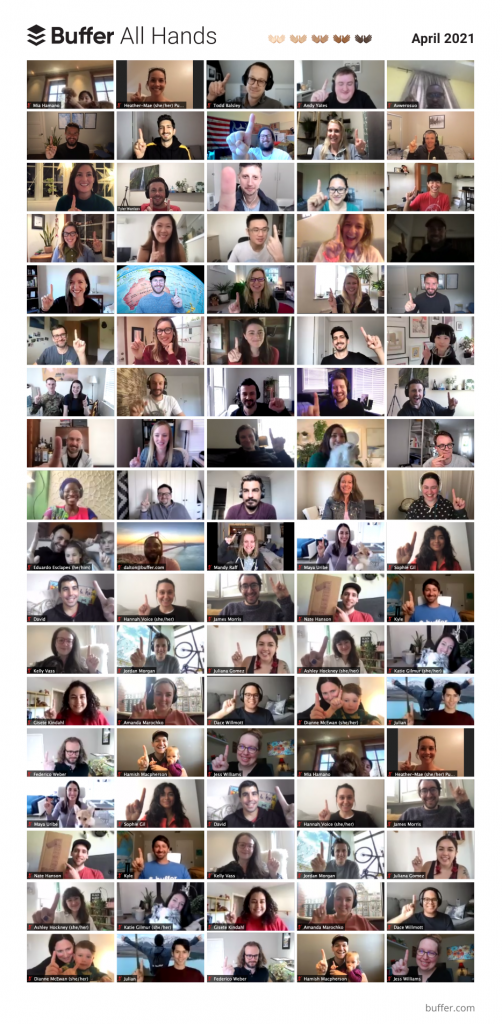
There are some very real side effects to remote work that can be challenging if they aren’t properly addressed as well. Because I move so much, I generally struggle to make friends as easily as someone who works in an office and can meet people at work. Working from home, which is my preference, can also lead to more overall loneliness and isolation. I’m very aware of these struggles though so I intentionally design my day to work to overcome these. For example, I join different local groups and sports to meet friends which helps with the isolation and loneliness.
6. What tools do you swear by while working remotely?
For asynchronous collaboration, I love using Notion for project work, as well as Threads for longer asynchronous discussions and decision making. Zoom is fantastic for synchronous calls, and then I use Slack for synchronous discussions and chatter.
I also personally use Todoist tons during the day to help me stay on track with all of the tasks I need to do and other reminders that are useful throughout the day. Another tool I swear by is Brain FM. I use their focus soundtrack when I’m doing deep work or writing throughout the day.
7. Your most exciting/ hilarious experience since you started working remotely.
Meeting up with colleagues in person as a remote worker is always super super exciting. Here is this person that you’ve only ever seen the top half of them on video calls and suddenly you are both standing next to each other.
The first large gathering of Buffer teammates for me was Buffer’s retreat to Madrid, Spain. It was incredibly overwhelming in a really positive way to meet so many teammates I’d only ever spoken with on Slack or Zoom and to suddenly be working together in person. All week I couldn’t believe how lucky I was. It was this feeling of being so grateful to be able to work remotely, while also realizing how much fun we’d all have together in an office. Ultimately, I know none of us want to give up remote work so we just make the most of our retreats and onsites together.
One funny thing that usually happens on retreats is everyone realizing how tall everyone else is, since that isn’t easily gleaned from Zoom. I happen to be quite tall and it was a shock for several teammates who had been assuming I was short for some reason.
8. What is your golden advice to a new remote worker?
Create boundaries between your work and personal life. This goes a long way to avoiding feeling like you can never get away from work because your devices are your office. There are a few ways that this can be accomplished. I recommend setting up a specific area for work to be done and leaving work in that area, for example the corner of a room or a home office if possible. That way, it doesn’t feel like work happens from every room in your home and you can truly relax at the end of the day because your brain doesn’t associate the space you are relaxing with getting work done. Another way to set boundaries is to be very strict with device notifications. I know people who, if they are using their laptops after work, log into their laptop with a different profile that doesn’t have any work app notifications. Similarly, be really intentional about which notifications come to your phone to avoid seeing work messages when you shouldn’t be working. The remote workers I know who are the most successful have created this separation between work and their personal lives and they get to fully be present at work and while not at work as a result.
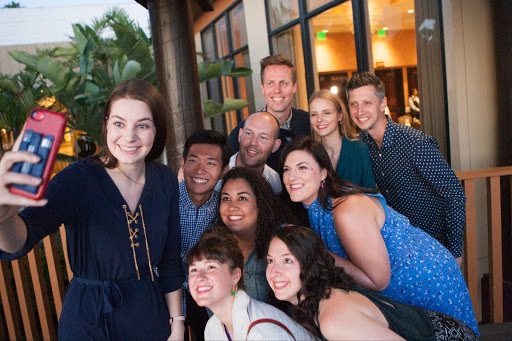
9. How do you see your career shaping up and your goals?
Buffer is a really unique company and it’s a wonderful opportunity. I’ve had the chance to work on projects that aren’t always common for people in public relations roles, things like our annual State of Remote Work and Pay Analysis. I really look forward to continuing to work with Buffer as Buffer grows and changes. We’re currently working a four-day work week, which is just one of the many ways that Buffer has been redefining work in addition to being a pioneer in the world of remote work.
I’m also keen to keep writing about remote work. I’m fascinated by the changes in the work landscape as a result of COVID-19 and I know many people who are keen for remote work to be the new norm. Organizations sometimes still struggle to see the benefits of remote work, though, so I’m eager to continue writing pieces highlighting the ways that remote work can ultimately be a super power to both individuals and organizations.
Overall, I’m excited to keep working on bringing attention to a different, more optimistic, way of working both through my work at Buffer and through my writing.
10. How do you expect remote working to evolve in the future?
I believe remote work will continue to be adopted by more and more organizations as a permanent policy. COVID-19 was not a great representation of true remote work as people didn’t have the overall location flexibility to work from coffee shops and coworking spaces or to travel the way that remote workers did pre-COVID. I’m hoping that as the world starts to open up that more people and organizations can experience true remote work and continue to implement either fully-remote or remote-first practices into their companies. Although I’ve seen several companies moving back to the office model, or moving to some sort of hybrid-remote model, the research shows that remote workers want to continue to have some level of remote work in their lives and I’ve seen fully-remote companies that are able to be more competitive with bringing on talent since they offer remote work whereas some of the companies requiring office work are already losing out on talent. I expect this situation to keep evolving over the next year or so but ultimately seeing remote work becoming the norm more often.
11. Where can we follow you on?
- https://twitter.com/hailleymari
- https://www.linkedin.com/in/hailleygriffis
- https://www.hailleygriffis.com
- https://www.makework.work